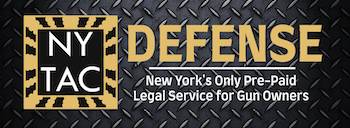Representation.
New York Vehicle & Traffic Law § 1192(3) – Driving While Intoxicated
Respected NY Criminal Defense Attorneys Representing Clients Facing Serious DWI Charges
Driving While Intoxicated is one of several New York DUI laws that prohibits drivers from operating a motor vehicle while under the influence of drugs or alcohol. No chemical tests are needed to prove a NY DWI offense under § 1192(3), and prosecutors will typically rely on the arresting officer’s observations to prove the intoxication element. Driving While Intoxicated is a misdemeanor in most cases unless the driver has any DUI-related conviction within the past ten years, in which case the crime becomes a Class E felony.
The Elements of Driving While Intoxicated Under NY VTL § 1192(3)
Before a judge or jury can convict anyone of DWI, the government must prove each element of the offense beyond a reasonable doubt. The elements of Driving While Intoxicated are:
- The defendant operated a motor vehicle; and
- At the time the defendant operated a motor vehicle, they were intoxicated.
As you can see from the elements, there is no requirement that the prosecution presents any chemical test results to prove a DWI charge. Thus, prosecutors will typically rely on the following:
- The manner in which the driver was operating the vehicle;
- The defendant’s physical condition and appearance;
- The presence of the odor of alcohol;
- Testimony from the arresting officer;
- The circumstances of an accident, if one occurred; and
- The results of chemical test evidence, if such a test was administered.
Examples of Driving While Intoxicated
Examples of DWI under § 1192(3) include the following:
- A driver is pulled over, smells of alcohol, but refused to take a breathalyzer when asked by police; and
- A driver caused a major accident, and a blood test confirmed they were intoxicated; however, the blood test results could not be admitted due to a problem with how they were processed or obtained.
Related Offenses to NY Vehicle & Traffic Law § 1192(3)
Often, prosecutors bring Driving While Intoxicated charges along with one or more of the following:
- Driving While Ability Impaired by Alcohol – N.Y. VTL § 1192(1)
- Driving While Intoxicated, Per Se – N.Y. VTL § 1192(2)
- Driving While Ability Impaired by Drugs – N.Y. VTL § 1192(4)
- Driving While Ability Impaired by the Combined Influence of Drugs and Alcohol – N.Y. VTL § 1192(4-a)
- Vehicular Assault in the First Degree – N.Y. Penal Law § 120.04
- Vehicular Assault in the Second Degree – N.Y. Penal Law § 120.03
- Aggravated Vehicular Assault – N.Y. Penal Law § 120.04-a
- Aggravated Driving While Intoxicated Per Se – N.Y. VTL § 1192(2-a)(a)
- Aggravated Driving While Intoxicated Per Se with a Child – N.Y. VTL § 1192(2-a)(b)
What Are the Defenses to Driving While Intoxicated?
There are several defenses to Driving While Intoxicated in New York. The effect of a defense can vary but may include reducing your sentencing exposure, prompting the prosecution to withdraw the case against you, or a jury finding that you were “not guilty” of DWI. The most common defenses include the following:
- You were not operating the vehicle at the time of your arrest;
- Insufficient evidence of intoxication;
- A lack of probable cause to pull you over; and
- Inconsistencies with the officer’s testimony.
What Are the Penalties for Violating NY Vehicle & Traffic Law § 1192(3)?
Driving While Intoxicated under § 1192(3) is a misdemeanor, carrying a jail sentence of up to a year and a fine between $500 and $1,000. However, if you have a DWI conviction (under any subsection) from within the past ten years, the offense becomes a Class E felony. In this case, a DWI conviction carries a maximum jail sentence of four years and a fine between $1,000 and $5,000.
Additionally, the court must impose a probationary sentence that starts once any term of incarceration is complete. For up to a year of your probation, the court will require you to install an ignition interlock device on your vehicle. However, the court must remove the interlock requirement if you install and maintain the device on your vehicle without issue for six months.
Get Started on Your Defense Today By Reaching Out to the New York DWI Defense Attorneys at Tilem & Associates, P.C.
If you’ve been charged with a DWI offense under § 1192(3), understanding the possible defenses you have against the government’s allegations is a good place to start. At Tilem & Associates, P.C., our dedicated team of NY DWI lawyers has over 25 years of experience defending clients charged with all types of DUI offenses, helping them maintain their freedom and their driving privileges. We are immediately available to meet with you to get started working on a compelling defense to the charges you face. To learn more, and to schedule a free consultation today, call 877-377-8666. You can also reach us through our online contact form.

















